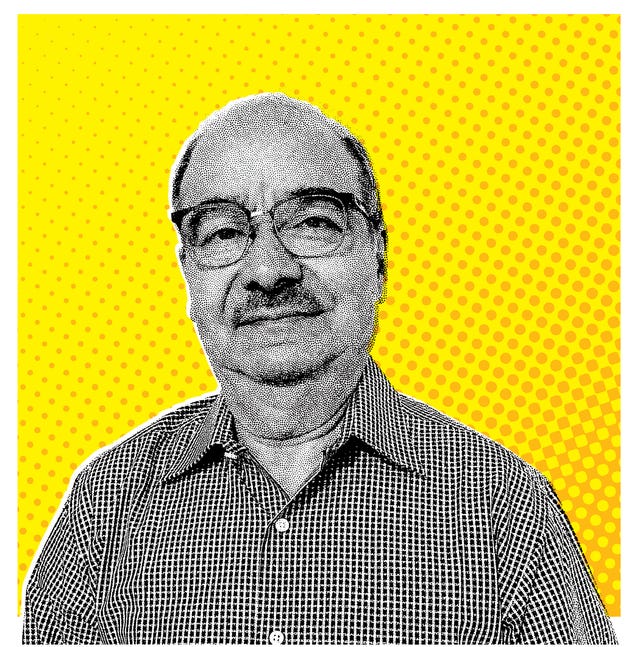
THIS NEW LONGEVITY trend is making many men realize that if you’re 50 or 60 and healthy, you may live another 30 or 40 more years. It’s creating a new breed of people who are staying engaged longer in different ways, and planning for the reality that that playing golf or hanging out with family and friends isn’t sustainable for the many decades ahead. Some guys may choose to stay longer in their professions or companies in existing or part-time roles and develop side-gigs. Others may seek more radical change, whether its going back to school or finding opportunities that harness the skills they already have. It just takes some imagination and self-discovery to get you there and to write your new script for your life. Now, various organizations are cropping up—mid-life career fixers in many fields—that can to help make the transition a little less stressful.
1. Want a mid-career internship? Try CoGenerate
CoGenerate, a national nonprofit focused on bridging the generational divides in the workforce, offers “midlife internships,” or a gap year for grown-ups, says founder and co-CEO Marc Freedman. Through what they call their Encore fellowships, the organization helps people transitioning from a full-time job into whatever’s next by pairing them with nonprofits for a half-year project full-time or a full-year project half-time. (Yup. It’s kind of like a paid internship.) “For many people who are figuring out what to do next, an encore fellowship allows them to use their knowledge and experience and try something else in the real world, particularly in social impact,” says Freedman.
Meet Vijay Dhar, Encore fellow
Dhar, who studied semiconductors in his native India, spent a long, successful career at many companies, including Intel. At 66, he decided to retire from his full-time position and apply for an Encore fellowship. His work through the internship made possible the launch of Li-Bridge, a profit/nonprofit collaboration working in the domestic supply chain for lithium-based batteries. Today, at 70, he is a full-time employee there, contributing to what he calls “mission-oriented innovation.” He is teaming up with the FCAB (Federal Consortium for Advanced Batteries), which includes the Department of Defense and state EPA groups, as well as the battery industry, in an effort to implement the national blueprint for lithium batteries by 2030. “The combination of Encore fellows, who have long experience, working with purpose-driven young experts can generate effective paths forward,” says Dhar. “But it is a lot of hard and dogged work that needs a lot of orchestration.”
More From Men’s Health

2. Fitness Certifications, Help Yourself and Others
If you have a passion for fitness, becoming a trainer is a way to ensure your own healthy longevity, help other people reach their goals, and pay your bills. Find an organization with certification courses (virtual or IRL) The National Strength and Conditioning Association, the National Academy of Sports Medicine, and the National Federation of Personal Trainers (NFPT) are just a few. And don’t worry about your age: Among NFPT-certified trainers, 22 percent are between 42 and 49, 23 percent are between 50 and 60, and 7 percent are 61-plus.
Meet Bill Konowitz, certified trainer
Bill Konowitz, a former medical-equipment salesman, left that job and started training more at his local YMCA. After getting certified, he became a fill-in instructor, and now, at 70, he’s qualified to teach group fitness classes, including spin, Pilates, TRX, and kettlebells. Konowitz says he was worried about facing age bias, but those concerns were unfounded. “People understand I am there to help them reach their fitness goals.” The hard part is being energetic for his 5:35 a.m. class, but he says he notices people lagging unless he brings his A game. Plus, he’s not even the oldest person in the class—”I have a regular who is 77,” he says.
3. Modern Elder Academy and A New Path to Purpose
More than 3,700 people have attended Modern Elder Academy workshops or retreats (held in Baja, Mexico). Although they attract participants of different ages, many are men in their 50s and 60s, from CEOs and investment bankers to firefighters and small-business owners. Popular programs for men include purpose and retirement, says founder and CEO Chip Conley. Often men join the workshops because they are navigating a midlife transition that includes career but also divorce, an empty nest, or a surprise health diagnosis. “They are particularly interested in cultivating and harvesting their life wisdom and experience,” says Conley. “Men don’t often have the emotional insurance or social-wellness infrastructure women have as they go through transitions.” A new campus will open in Santa Fe in March.
Meet Bob Craig, Social-Justice advocate
After leaving his role as the CIO of a major Ohio law firm, Craig says he had a “fear of losing his sense of self.” The 63-year-old attended the “Leading from Your Essence” workshop at Modern Elder Academy and found it liberating. It put him on a path of “open discovery,” and he was able to let go of the affirmations that came with his career and go deeper into the core of who he is and what might be next. “I explore meditation and even psychedelics,” he says. “I’m not sure where the path will lead, but I know that I’m interested in the nonprofit world and social justice. Most of all, I found my curious tribe of growth-minded people.”
4. Advanced Leadership Initiative and Community Activism
One of the most prestigious post-career programs is the Harvard Advanced Leadership Initiative (ALI). Even though no degree is earned, it is a meaningful one-year program designed to help experienced professionals focus on solving some of society’s issues. Stanford and Notre Dame, among others, have similar programs, and the University of Chicago and Boston College have recently launched their own. At Harvard, ALI students use a framework called “Person, Problem, Pathway” to learn how to innovate in an impactful way.
Meet Jonathan Drapkin, student
Former executive Drapkin, 67, is taking a core curriculum, auditing courses within the school’s graduate programs, and interacting with the 45 others in the program. “The most challenging aspect,” he says, “is the constant exposure to new ideas, opinions, and concepts, resulting in frequent reassessments of ‘What comes next?’ for me.” As for the most rewarding? “That’s discussions with fellow students, the interaction with a career coach that the program provides, and finding new friends during this part of my life.” His focus of study has been on helping high school students from low- to moderate-income communities learn life skills that enable them to realize their potential.
5. Learn Emergency Medicine Skills, Find a Job Outdoors
Many people who work in cities yearn for more time in the outdoors. One avenue into doing that is becoming a Wilderness Emergency Medicine Technician. Two of the best places to get certified are the National Outdoor Leadership School (www.nols.edu) and Solo (https://soloschools.com/). Expect a month-long intensive course where you learn wilderness medicine and urban medical care practices involving classroom education, practical skills, scenarios, and full-scale mock rescues. By the end you’ll be ready to handle medical emergencies, in the wilderness or in town, preparing you to work on an ambulance, for an outdoor organization, or a land management agency.
Meet Jacob Lewis, Wilderness EMT
After years in the publishing business and as an entrepreneur in the content world, Lewis, who is in his fifties decided that it was time to pursue his passion of working outdoors. He trained first an urban EMT as well as in wilderness first aid, then did the month-long NOLS course in Weed, California. “It was incredibly difficult to walk away from my job but I don’t regret it for a minute,” he says. “I enjoy the work, the people, and the physical and outdoor components. Most importantly, I don’t take the stress home with me, in the way I did when I was working in a more traditional office environment.” Lewis says that his rewire is not to dissimilar to being an entrepreneur. “I made this change to push myself in ways that can be scary and risky,” he says. “But it will make me happy and enable me to find adventure in this one life I have.” Lewis is planning on using his training to join on search and rescue missions, and also guide trips into the backcountry; and currently using his skills as an EMT at a camp in the mountains of upstate New York.




